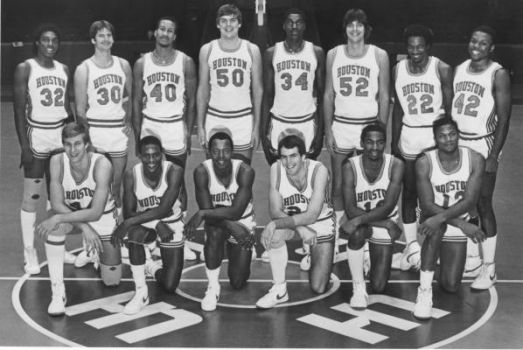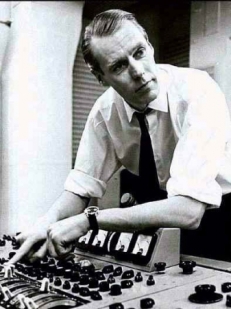
My middle son, age 23, texted me last Wednesday night while my wife and I were out of town: “I’m in downtown LA shaking…shivering… cannot believe what I just witnessed.”
Oh my God. Was he Ok? Had he just witnessed a murder? A hit-and-run accident? Should we drive home?
No. He and his older brother had agreed to meet downtown just to stand outside Staples Center to be in close proximity for Kobe Bryant’s last game as a Los Angeles Laker.
Bryant’s 60-point performance had– literally and viscerally– emotionally moved my son.
My response: “Glad you were there…something to remember the rest of your life.”
In truth, the “Kobe question” had been gnawing at me for years: was a man accused of rape in 2003 worthy of such adulation?
This was a tough one. I had raised my three boys as Laker fans and once you do that, well, there’s no turning back.
Kobe’s rape charge in the summer 2003 threw my family for a serious loop, to the point where I didn’t know how to react. The first move was to hide the newspaper for a few days before finally summoning the strength to explain the situation.
“You can’t play games forever,” I wrote in a column for the L.A. Times in July of 2003, “so Friday night, I called my boys into the living room and told them the truth: that Bryant had been charged with a bad crime against a woman but that didn’t mean he was guilty.
I told them that it was OK to have sports heroes but that they needed to understand that heroes bleed, make mistakes and, in some cases, go to jail.
The conversation was long overdue, but you know how that goes.
The message, I suppose, as always, in the end, is “choose your sports heroes carefully.”
And then life went on. Charges against Bryant were dropped. A civil case was settled out of court. Bryant led the Lakers to two more NBA titles.
And that was (sort of) the end of it.
I continued to enjoy Bryant as a player while generally dismissing him as an admirable person. I was somewhat satisfied knowing that Bryant did pay a tab for his dirty deed in Colorado. He lost millions in endorsements. The best he could do for a while was an ad for “Turkish Airlines.” His wife filed for divorce. He was publicly shamed and humiliated.
His wife ultimately forgave him and the couple reconciled. “Why?” is really none of my business.
As years passed, I even grudgingly admitted to his seeming maturation.
Did that change what happened in 2003?
No.
But should I feel ashamed for enjoying his truly incredible, career-ending performance last Wednesday?
Same answer: No.
My son rode the metro to downtown and told me he couldn’t believe the galvanizing impact Kobe’s last game had on the community. African Americans in Kobe jerseys bonded with Koreans in Kobe jerseys. Rich fans bonded with poor.
Yet, Kobe also faced inevitable backlash from a few social media morality deputies who wanted to remind us of Bryant’s undeniable past.
African American columnist Jason Whitlock went so far as to call Kobe “the most fraudulent celebrity athlete we have ever seen.”
The problem here is that some people paint the world in black and white when it is, in fact, almost always gray.
Just because we have a justice system doesn’t mean there’s always justice. Fact: rich people who can hire fancy lawyers have a far less chance of going to jail. Fact: Kobe was a rich person.
Fact: all human beings are flawed. We should not cherry pick on moral authority.
I love John Lennon’s music even though he was a woman beater. He wrote a song in the 1960s called “Run For Your Life” in which he sang, “I’d rather see you dead little girl than to be with another man.” He toughened up a sappy Paul McCartney song on Sgt. Pepper’s with a middle verse “I used to be cruel to my woman I beat her and kept her apart from the things that she loved. Man, I was mean but I’m changing my scene.”
I’m glad he did change his scene because the lyric was autobiographical, as Lennon explained in a 1980 interview with Playboy: “I was a hitter. I couldn’t express myself so I hit. I fought men and I hit women.”
Can I deplore Lennon’s early anger issues and still think “In My Life” was one of the greatest songs ever written?
One of Mick Jagger’s ex-wives, Jerry Hall, claims he was a sexual deviant. But gee, at least Mick had the decency to wait for Mackenzie Phillips, the daughter of John Phillips, to turn 18 before he took sexual advantage of her. You know, just to make it not, officially, a crime.
Should I post this on Facebook every time I sing along to “Wild Horses” on the radio?
Picasso was a serial womanizer. Roman Polanski fled the U.S. rather than face charges for having sex with a 13-year old girl. He also directed “China Town” and “The Pianist.”
Woody Allen had an affair with his step daughter, yet I still enjoyed “Midnight in Paris.”
Bill Clinton is a lousy husband but was a good president. George W. Bush seems like a good husband but was a lousy president.
Franklin Roosevelt had an affair with Lucy Mercer, but I’m glad Eleanor didn’t leave him. Dwight Eisenhower was an adulterer but I’m glad he led the Normandy Invasion.
Life isn’t always “either-or” or “all-or-nothing.” More often, it’s everything in between.
I’m confident I can keep all that straight when I consider what Joe Paterno knew about Jerry Sandusky and also what “JoePa” still means to so many Penn State fans.
Appreciating what Kobe did the other night, scoring 60 points in his final game, doesn’t exonerate him for his imperfections and indiscretions.
I’ve also determined it was OK for my boys to enjoy last Wednesday without guilt, so long as they understood the full arc of his life AND his jump shot.


 The cautionary school is now a cautionary tale. Baylor, you may recall, is the Waco place that outlawed dancing on campus from 1845 to 1996.
The cautionary school is now a cautionary tale. Baylor, you may recall, is the Waco place that outlawed dancing on campus from 1845 to 1996.


 It was a huge, heroic, in-your-face win for the Big East, which was decimated by cut-throat expansion instigated by the predatory ACC, which big-footed six teams into the Sweet 16 but couldn’t cut down the final net.
It was a huge, heroic, in-your-face win for the Big East, which was decimated by cut-throat expansion instigated by the predatory ACC, which big-footed six teams into the Sweet 16 but couldn’t cut down the final net.




